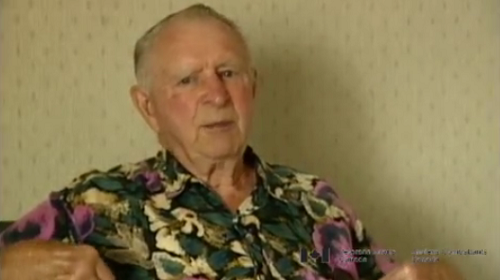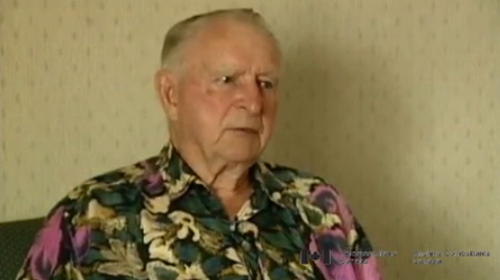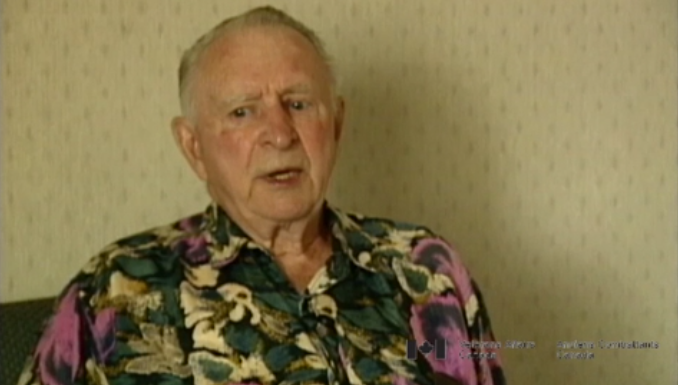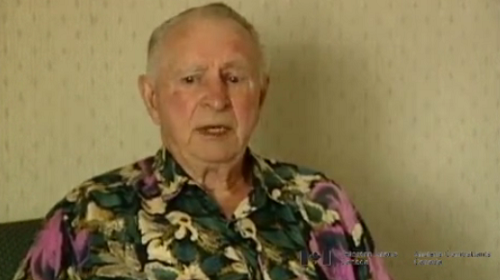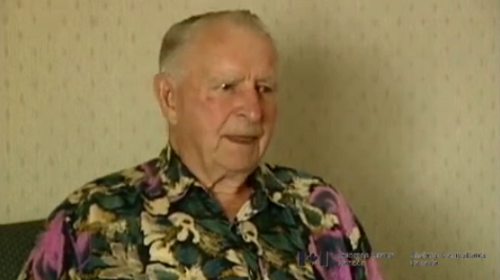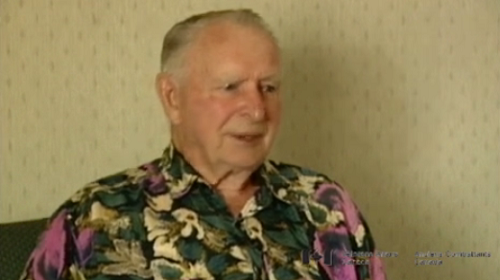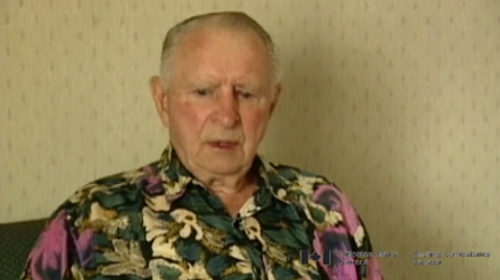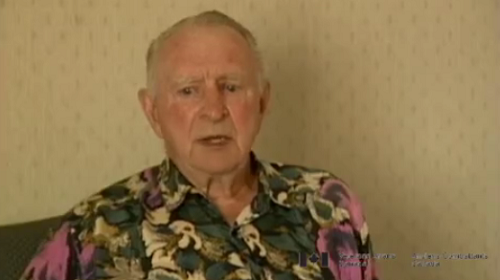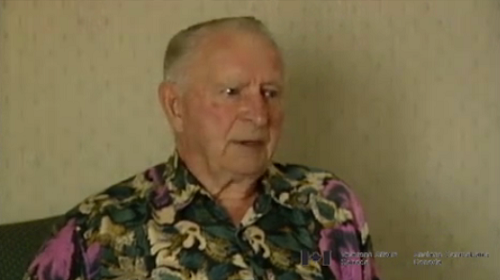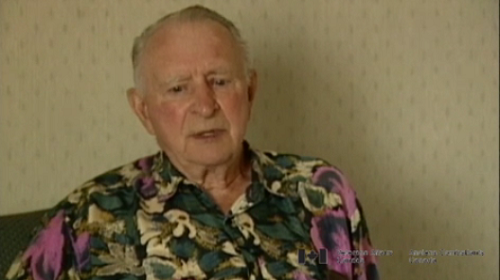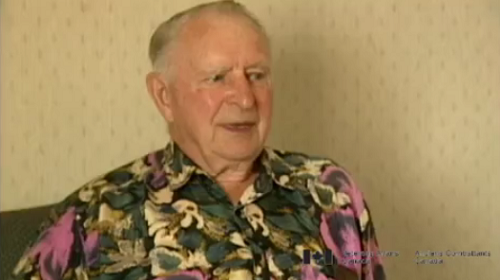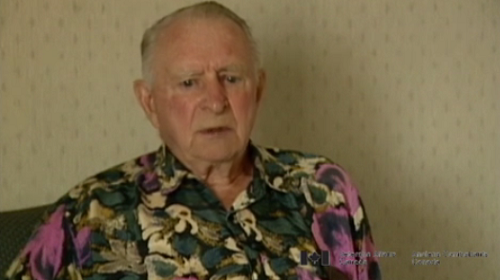Well I was on there, it was either overnight or
two nights, I forgot which,
I think it was only overnight and I was fortunate
that I was physically okay except
I couldn’t walk but I could get around with
crutches so they were taking a bunch of the
people in that condition and loading them on
C 54’s and flying them home.
So it turned out I got on the first plane load
coming home. Again I was lucky.
Interviewer: And where did you land?
In San Francisco and they had set up
Letterman Hospital there just for returning
POW’s and the group I was with
was the first bunch into it.
In fact, I was the first actual
returning POW to land in the States.
Harry Atkinson beat me to Winnipeg but
I stayed in Letterman for three days where
he came straight on through so he got
home a day before I did.
I was kind of let down by the Canadian Army
because in this Letterman, they had booths set
up in every corridor in the hospital.
They were staffed by I guess volunteer
girls 24 hours a day, that anything you
wanted except, I guess you couldn’t get liquor but
if you wanted any fruit juice or anything like that
they were right there just to hand it to
you and meals, anything you wanted,
and completely outfitted with American clothing.
And then we got to Vancouver,
got off the train and I forget the baracks
we went to, anyway it was quite late
at night when we got there.
So a staff sergeant said, “Are you hungry?”
Ya, we could use something to eat because
we could always eat then.
So he said, “I will see what I can find!”
So he came back in a little while and
he had a cardboard carton about this big full
of stale cake and a jug of milk.
We ate it anyway, of course, but just the
contrast between the two was kind of startling.
Interviewer: Where did you go from Vancouver?
Straight through to Winnipeg.
Interviewer: And what was the homecoming like?
Well I, I guess had the biggest crowd of any
because Harry Atkinson got in the day before and
he kind of surprised everybody but
by the time I got here a lot of people were aware.
Actually, there were two of us, there was myself
and a fellow from the Royal Rifles.
He was going on through to Barrie, I think, and
got off the train and the guards or police
had to clear a path through the crowd for
myself and my family to get out of it.
It was the old CPR station.
Interviewer: What was your reaction?
I was kind of numb I think.
I don’t remember it all that clearly and
for the next week or two,
I just dreaded to hear the phone ring
because I knew it was going to be
somebody that had gotten my name and
could find my phone number and
wanted to know about their relatives or
their sons or brothers or whatever and
so many of them I knew hadn’t made it and
it’s not easy to tell people that.



